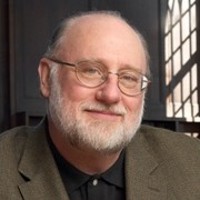Richard Langlois on UConn Econ
ICLE Academic Affiliate Richard Langlois was quoted by The Daily Campus in a story about his recent selection as head of University of Connecticut’s economics department. You can read full piece here.
Richard Langlois, who has been teaching at the University of Connecticut since 1983, was hired as the new department head of economics in January.
As department head, Langlois said his goal is to get more department resources and improve the experience for students. Langlois said the growing number of students studying economics has led to one of the worst student-to-faculty ratios in the University.
“One of the things that we really need to improve on in this major is getting undergraduates in contact with tenure track faculty,” Langlois said. “Many people want to study economics, and our faculty hasn’t grown commensurately with the number of students that want to major.”
Economics is one of the largest departments at UConn, with over 1100 students, and is a part of the College of Liberal Arts and Sciences.
Langlois explained the department used to have large classes with teaching assistants running sections, but now they don’t have teaching assistants to do that, resulting in a lot of courses being online.
“We are trying to do more with less,” Langlois said. “We are trying to make the experience better for students.”
Langlois began teaching the history of economic thought at UConn and eventually taught other classes, including industrial organization and graduate-level courses such as the economics of organization.
Although Langlois has taught economics at UConn for 40 years, he found economics late in his college career. As an undergraduate, he studied physics and English at Williams College, then went to graduate school to get a degree in astronomy at Yale. He said it was then he realized he didn’t want to be an astronomer. Instead, he found an engineering economic system program at Stanford, where he was introduced to economics.
“The first economics course I ever took was in graduate school, and I fell in love with it,” Langlois said. “The class explained the world to me in a way that nothing else has, and I think that is true for a lot of people who take economics.”
Langlois said if he had one piece of advice for students, it would be to experiment with majors until they find one they are passionate about.
“Economics is a particularly flexible major. So we get a lot of people who come into the major late after having tried other things first. You are not going to find what you want to do necessarily right away,” Langlois said.
Langlois said some students come in and know what they want to do, and others don’t know because they may not have been exposed to it yet. Langlois, a first-generation student from northeastern Connecticut said he knew about science, but didn’t know about all the other things he could do in the world.
Langlois added that there are many things that you can do with an economics degree, and it is good preparation for almost any kind of career.
“[Economics] makes you think broadly about the world and gives you some analytical tools to understand how the world works, which I think is extremely valuable, and teaches students the value of thinking rigorously about things,” Langlois said.





